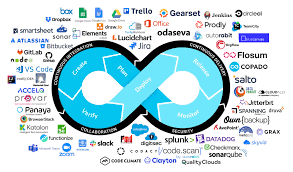Salesforce DevOps aligns with traditional DevOps principles but focuses on leveraging Salesforce at scale. Its core objective is to assist development teams in proactively identifying problems, detecting bugs, and resolving issues before implementing changes for customers. Salesforce DevOpps Engineer Explained.
Salesforce DevOps Engineers play a crucial role in ensuring the seamless deployment of Salesforce changes throughout the software development lifecycle, minimizing bugs, and avoiding disruptions for users.
Contrary to requiring extensive coding skills, our no-code Salesforce DevOps platform accelerates Salesforce deployments by 50-75%, providing the flexibility to automate Continuous Integration/Continuous Deployment (CI/CD) pipelines with a preferred choice of tools.
The responsibilities of a Salesforce DevOps Engineer are unique to the Salesforce ecosystem and necessitate a specialized understanding of Salesforce. The role can be categorized into entry-level, mid-level, and senior based on experience.
Salesforce DevOpps Engineer Explained
- Entry-level (0-2 years): Involves committing changes to source control, opening pull requests, and participating in code reviews within source control.
- Mid-level (2-5 years): Encompasses working with a more complex Salesforce org, setting up, monitoring, and enhancing DevOps processes such as CI/CD, test automation, and monitoring.
- Senior (5+ years): Involves comprehensive oversight of the DevOps process, including tasks like managing backups, delegating access to orgs and DevOps processes, and defining/tracking DevOps Key Performance Indicators (KPIs).
The demand for Salesforce DevOps is on the rise. More teams recognizing the advantages of reliable deployments and automated releases. While not all job titles explicitly mention “DevOps,” the practices are integrated into various roles such as administrators and developers. Senior Salesforce DevOps Engineers, with a minimum of 5+ years of experience, typically serve as Team Leads in multidisciplinary teams. They oversee the entire DevOps process, delegate responsibilities, define KPIs, review code coverage and quality, and mentor others within the team.
Hiring a Salesforce partner like Tectonic often involves incorporating a Salesforce DevOps Engineer into the team structure.
If your core Salesforce team is missing a solid Salesforce DevOps Engineer, reach out to Tectonic today for assistance.













